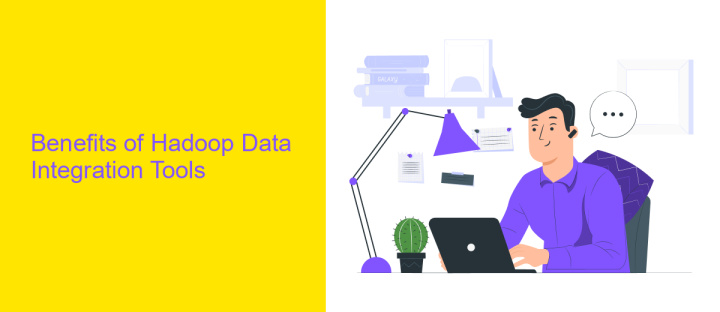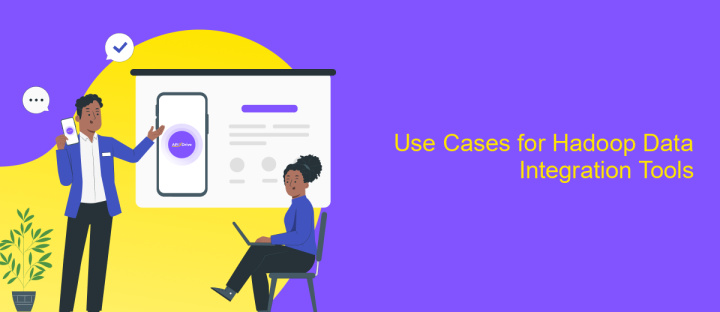Hadoop Data Integration Tools
Hadoop Data Integration Tools are essential for managing and processing vast amounts of data across distributed computing environments. These tools streamline data ingestion, transformation, and loading processes, ensuring seamless integration with Hadoop ecosystems. By leveraging these technologies, organizations can enhance their data analytics capabilities, improve operational efficiency, and drive informed decision-making. This article explores the key Hadoop data integration tools and their benefits.
Introduction
Hadoop has revolutionized the way organizations handle big data by providing a robust, scalable, and cost-effective framework. As the volume of data continues to grow exponentially, integrating and managing this data efficiently becomes crucial. Hadoop data integration tools play a vital role in facilitating seamless data flow between various sources and the Hadoop ecosystem, ensuring that data is processed and analyzed effectively.
- Data ingestion from multiple sources
- Data transformation and enrichment
- Data quality and consistency checks
- Scalability and performance optimization
- Support for various data formats and protocols
These tools not only simplify the process of moving data into Hadoop but also enhance the overall data pipeline by providing features such as real-time data processing, data lineage tracking, and integration with other big data technologies. By leveraging the right Hadoop data integration tools, organizations can unlock the full potential of their data, driving better insights and more informed decision-making.
Benefits of Hadoop Data Integration Tools

Hadoop Data Integration Tools offer significant benefits for managing and processing large datasets. These tools streamline the data integration process, enabling efficient data ingestion from various sources into the Hadoop ecosystem. By automating data workflows, they reduce the time and effort required for data preparation, allowing organizations to focus on data analysis and decision-making. Additionally, these tools provide robust data transformation capabilities, ensuring that data is cleansed, formatted, and enriched before it is stored in Hadoop.
Another key advantage is the seamless integration with other data systems and platforms. Tools like ApiX-Drive facilitate this process by offering pre-built connectors and easy-to-use interfaces, making it simple to set up and manage data integrations. This not only accelerates deployment but also minimizes the risk of errors and data loss. Furthermore, Hadoop Data Integration Tools enhance data security and governance by providing features like data lineage tracking, access controls, and real-time monitoring, ensuring that data is managed in compliance with regulatory requirements.
Types of Hadoop Data Integration Tools

When it comes to integrating data within Hadoop ecosystems, there are several tools available that cater to different needs and requirements. These tools help streamline the process of data ingestion, transformation, and management, ensuring seamless data flow across various systems.
- Apache Sqoop: A tool designed for efficiently transferring bulk data between Hadoop and structured datastores such as relational databases.
- Apache Flume: A distributed service for collecting, aggregating, and moving large amounts of log data into Hadoop.
- Talend: An open-source data integration platform that provides a wide range of connectors and components for Hadoop integration.
- Informatica: A comprehensive data integration tool that supports Hadoop and provides robust ETL capabilities.
- Apache Nifi: A data integration tool that automates the movement of data between disparate systems with a user-friendly interface.
Each of these tools offers unique features and capabilities, making it essential to choose the right one based on specific project requirements. Proper selection and implementation of these tools can significantly enhance the efficiency and effectiveness of data integration within Hadoop environments.
Use Cases for Hadoop Data Integration Tools

Hadoop data integration tools are essential for organizations dealing with large volumes of data. They streamline the process of collecting, processing, and analyzing data from various sources, making it easier to gain insights and make informed decisions. These tools are particularly useful in industries where data plays a crucial role in operations and strategy.
One of the primary use cases for Hadoop data integration tools is in the field of big data analytics. Companies can harness these tools to manage and analyze vast datasets, enabling them to uncover patterns, trends, and correlations that would be impossible to detect manually. Additionally, these tools are invaluable for real-time data processing, allowing businesses to respond swiftly to changing market conditions and customer behaviors.
- Enhancing customer experience through personalized recommendations.
- Optimizing supply chain operations by analyzing logistics data.
- Improving fraud detection and risk management in financial services.
- Supporting healthcare analytics for better patient outcomes.
- Driving marketing strategies with data-driven insights.
Overall, Hadoop data integration tools provide a robust framework for managing and leveraging big data. By integrating diverse data sources and enabling advanced analytics, these tools empower organizations to innovate and maintain a competitive edge in their respective industries.
Best Practices for Using Hadoop Data Integration Tools
When working with Hadoop data integration tools, it's crucial to ensure data quality and consistency. Start by defining clear data governance policies and standards. Regularly monitor and validate data to detect and rectify discrepancies early. Utilize tools that offer robust data transformation and cleansing capabilities. For instance, ApiX-Drive can help automate data integration processes, ensuring consistent and reliable data flow between systems.
Another best practice is to optimize performance and scalability. Configure Hadoop clusters to handle peak loads and ensure efficient resource management. Leverage parallel processing and data partitioning techniques to enhance performance. Additionally, regularly update and maintain your integration tools to leverage the latest features and security patches. ApiX-Drive can assist in managing these integrations seamlessly, reducing manual intervention and potential errors.
FAQ
What is Hadoop and how does it help with data integration?
What are the main components of Hadoop?
How can I integrate data from different sources into Hadoop?
What challenges might I face when integrating data into Hadoop?
Is there a way to automate data integration processes for Hadoop?
Do you want to achieve your goals in business, career and life faster and better? Do it with ApiX-Drive – a tool that will remove a significant part of the routine from workflows and free up additional time to achieve your goals. Test the capabilities of Apix-Drive for free – see for yourself the effectiveness of the tool.

